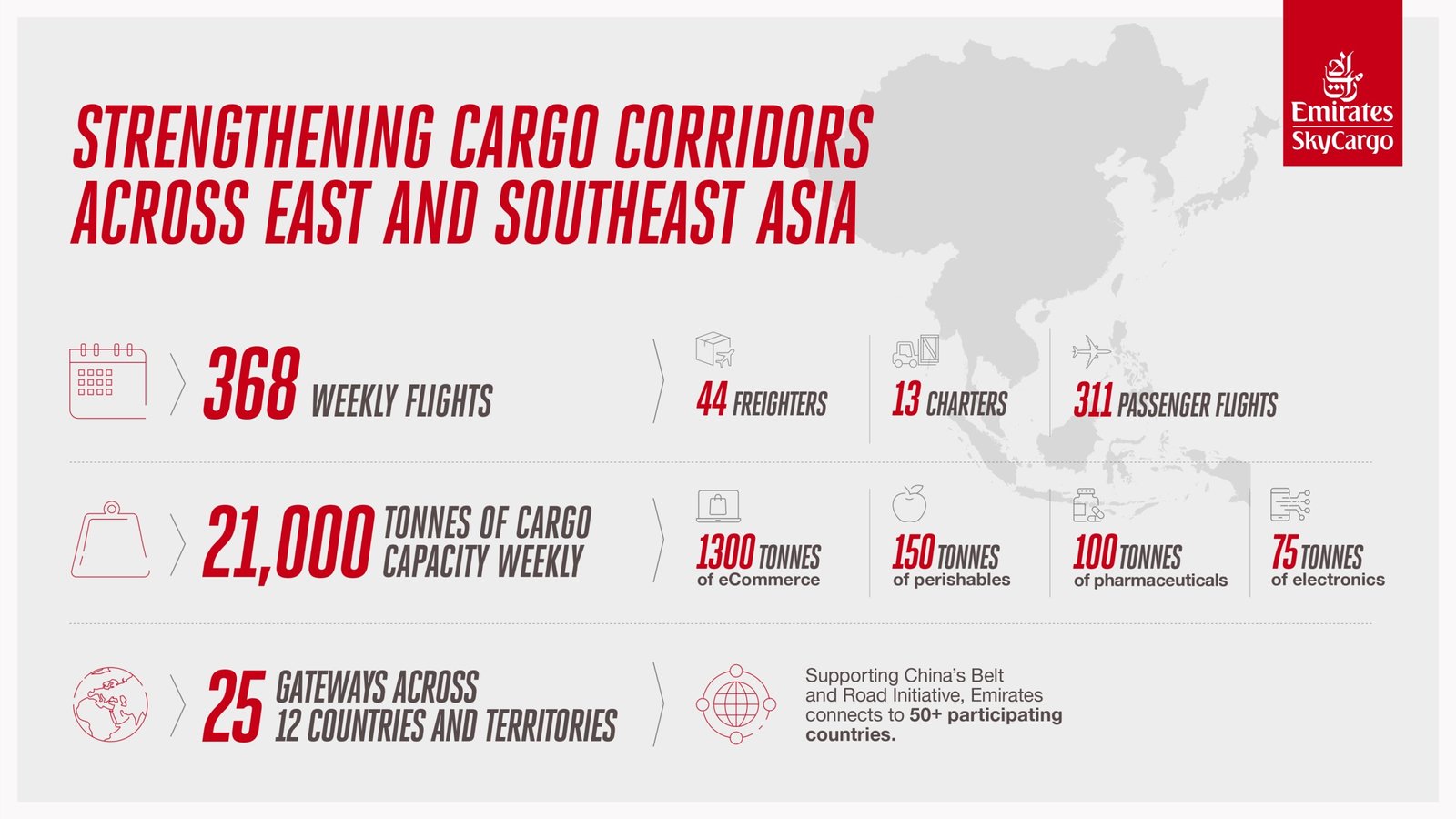Global trade just leveled up 🌏✈️
Dubai, 13 August 2025 — Emirates SkyCargo is making serious moves in East and Southeast Asia, with a massive 21,000 tonnes of cargo capacity every week across 25 gateways. With this, Emirates has built the largest and most diverse Asian network of any non-Asian airline.
For a region that’s basically the world’s factory floor, this upgrade means faster shipping, stronger supply chains, and more seamless trade.
What This Means for Asia and Beyond
Here’s how Emirates SkyCargo is keeping goods moving at high speed:
- 44 freighter flights weekly to 9 major Asian gateways
- 13 charters weekly for extra flexibility
- 311 passenger flights also carrying cargo alongside travellers
- That’s an Emirates plane leaving Asia every 30 minutes
From fashion and seafood to electronics and e-commerce, everything is moving quicker, smoother, and more reliably.
Asia as the Trade Powerhouse
East and Southeast Asia drive the global economy, and Emirates SkyCargo is backing that up with numbers:
- 📦 1,300+ tonnes of eCommerce weekly
- 🥭 450 tonnes of fresh produce
- 💊 100 tonnes of pharmaceuticals and medical devices
- 💻 75 tonnes of electronics and semiconductors
- 👕 180 tonnes of garments
This network, dubbed the “Aerial Silk Road”, connects over 145 destinations worldwide, boosting global trade and even supporting China’s Belt and Road Initiative.
Powering Growth Through Partnerships
To supercharge Southeast Asia trade, Emirates SkyCargo partnered with Teleport, AirAsia’s exclusive cargo partner. This unlocks 100+ regional airports and connects even the most local markets with global hubs.
That means Malaysian SMEs, Indonesian farmers, or Thai designers can now send their products to Europe, the USA, or Canada with greater ease.
Breaking Records Since Day One
Emirates has a history of firsts:
- ✈️ First direct cargo flights Middle East–Shanghai in 2002
- ✈️ First direct freighter service Middle East–Narita, Japan in 2025
With its 10-year growth strategy, expect more routes, more frequency, and a stronger role in shaping the future of global logistics.
